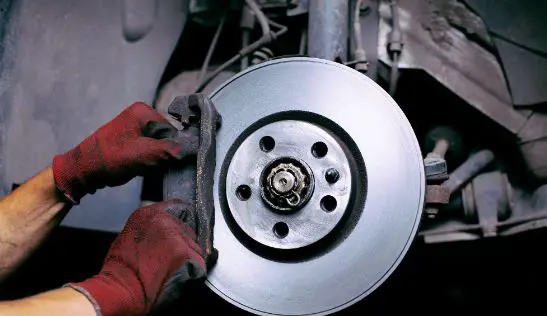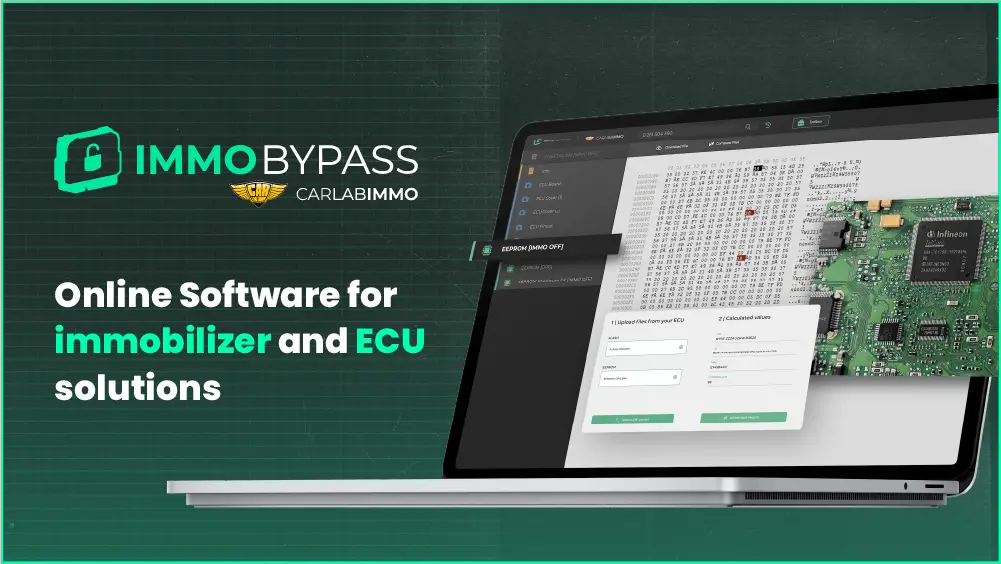Do your car’s brakes squeal when you back up? If so, you’re not alone. This is a common problem that many drivers experience. There are a few things that can cause this to happen, and we will discuss some of the most common issues in this blog post. We will also provide solutions on how to fix the problems, and we will give you an idea of what the cost might be to have this issue fixed professionally.
Let’s take a look!
How Do Modern Car Braking Systems Work?
Before we dive into the potential causes of brake squeal, let’s take a moment to understand how car braking systems work. The brakes on your car are one of the most important safety features and they need to be in good working order.
The main components of a modern car braking system include the brakes, calipers, rotors and pads.
The brake pedal is the part of the vehicle that the driver uses to apply force to activate the brakes. This force pushes on a master cylinder which then pressurizes the brake lines to send brake fluid throughout the braking system.
The calipers are located on each wheel and contain small pistons that grip onto the rotor when the brakes are applied. The rotors, which are metal discs attached to each wheel, spin along with the wheels. When the brakes are activated, the calipers squeeze the rotors, causing friction and creating heat energy. This is what causes the wheels to slow down and eventually stop spinning.
The brake pads are also an important component of a modern car braking system. The pads contain a soft material that helps absorb some of the heat generated from the friction between the calipers and rotors.
What Does Brake Squeal Sound Like?
Brake squeal is a very distinct, high-pitched sound that can be heard when applying the brakes of a car. It is usually caused by vibration between the brake pads and rotors which creates a resonance and amplifies the sound. Brake squeal can range from being fairly mild to quite loud, depending on how much friction is present. It can also become more frequent and intense over time, as the brake pads wear down and the rotors become less smooth and even.
In addition to sounding unpleasant, brake squeal is often a sign that there is something wrong with your car’s brakes.
What Are The Main Causes Of Brake Squeal?
Brake squeal can be a frustrating experience. It usually occurs when your brakes are applied and can range from mild squeaking to loud screeching. Understanding the most common causes of brake squeal can help you troubleshoot and resolve the issue quickly.
1. Dust and Dirt:
Dust and dirt buildup on the rotors or pads is one of the most common causes of brake squeal. To fix this, simply clean off any dust or dirt with a soft cloth or brush, then apply some brake cleaner to remove any stubborn grime that may have built up over time. If necessary, you can also sand down the rotor or pad surface using fine-grade sandpaper to remove any excess material that may be causing the squeal.
How much does it cost to remove dust and dirt?
The cost of cleaning off dust and dirt will depend on the materials you use and the type of brakes you have. Generally, a simple cleaning with a cloth and brake cleaner should not cost much more than $20. If you need to use sandpaper, the cost could be around $50.
2. Worn Pads/Rotors:
Worn-out brake pads and rotors can also cause brake squeal. If your brakes have been worn down, you’ll need to replace them with new ones in order to stop the noise. Make sure to follow the manufacturer’s instructions for proper installation of the new parts in order to prevent further issues down the road.
How much does it cost to replace worn pads/rotors?
The cost of replacing worn pads and rotors will vary depending on the make, model, and year of your vehicle. Generally speaking, you can expect to pay anywhere from $100 to $250 for the parts and labor required for a complete replacement. This cost can go up if your vehicle requires specialty parts that aren’t widely available. It’s always a good idea to check with your mechanic before starting any repairs, so you know exactly what you’re getting into.
3. Incorrect Component:
Sometimes, brake squeal is caused by an incorrect component being installed on your car. This could be due to a mismatch between the make and model of the vehicle and the part that was used during installation or other mismatches in size, material or shape between components. To fix this, you should make sure that all components being installed are compatible with your car and the manufacturer’s specifications.
How much does it cost to fix bad components?
The cost of fixing incorrect components will depend on the part being replaced and the labor involved. In most cases, it should be relatively inexpensive as long as the part is readily available. If you have to order a specialty part, the cost can go up significantly. Generally speaking, though, it should not cost more than a few hundred dollars.
4. Poor Assembly/Installation:
If the brake components were not assembled properly or not installed correctly, it could also be the cause of brake squeal. In order to fix this, you can either have a professional mechanic inspect your brakes and correct any mistakes that may have been made during installation or assembly, or you can replace the defective parts yourself. Just make sure to follow all instructions provided by the manufacturer in order to ensure proper installation of new parts.
How much does it cost to fix bad installation issues?
The cost of fixing poor installation or assembly issues will depend on the type and amount of work that needs to be done. If you choose to have a mechanic inspect your brakes and repair any mistakes, the cost could range from $50 to $150 depending on the type of work required. If you choose to do the work yourself, you should factor in the cost of any additional parts that may be needed. In most cases, this should not cost more than a few hundred dollars.
5. Misalignment:
Misalignment can also cause brake squeal and should be checked and corrected as soon as possible. This can usually be done by a professional mechanic,
How much does it cost to fix misalignment?
The cost of fixing alignment will depend on the type of work that needs to be done. Generally speaking, you should expect to pay around $50-$150 for a professional mechanic to inspect, adjust, and/or replace any faulty parts. If you choose to do the work yourself, there may also be additional costs for any new parts that are needed. In any case, the total cost for fixing misalignment should not be more than a few hundred dollars.
What If Brakes Only Squeal While Reversing or Backing Up? What Does This Mean?
If your brakes only squeal when you are reversing or backing up, then this could be a sign of an underlying issue with your brakes. In particular, it could be caused by worn brake pads and/or rotors, incorrect components, poor assembly/installation or misalignment. It is important to have these issues checked out as soon as possible in order to avoid further damage down the road.
Why are the brakes not squealing when moving forward?
The reason why the brakes may not be squealing when moving forward is due to how the brake components interact with each other. When you are driving in reverse, there is more pressure being put on the brake pads and rotors, thus making them more likely to cause squealing noises. When you are moving forward, however, the pressure is released somewhat and it becomes less likely for the brakes to squeal.
Is It Safe To Drive With Squealing Brakes?
No, it is not safe to drive with squealing brakes. The noise itself is usually a sign that something is wrong with your brakes and should be inspected by a professional mechanic immediately in order to prevent any further damage from occurring. If you continue to drive without having the issue fixed, you may risk doing more damage to your brakes and potentially putting yourself in danger.
Go Home








